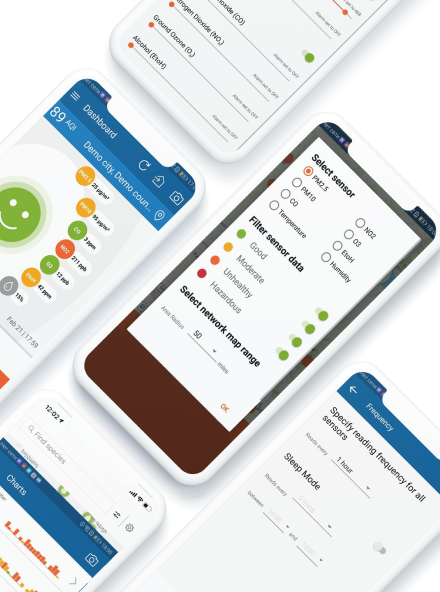
Effective Ways of Leading Remote Teams
9 Mar 2022

Many organizations all around the world have started to adopt remote working. Some of them have been doing it for quite a long time, but for others, it’s quite a new and, therefore, challenging experience. The truth is, the remote world provides you with incredible opportunities to be more purposeful, more creative, more fun, and create a team that builds deep connections online.
During the transition to working from home, some people thought that it would be a challenge to complete tasks with the same efficacy. Others, on the other hand, thought that it would increase productivity. Let’s go over some of the reasons of why there is such a strong difference in opinions, because, when done right, leading remote teams isn’t such a struggle after all.
Challenges of Managing Remote Teams
Although most employees find remote work very comfortable and beneficial in many regards, many managers don’t find it as advantageous. This is because managing a remote team tends to be more difficult than managing an on-floor team. Let me give you a few examples.
Communication Gaps
If you work in a team, you are well aware of the importance of clear, to-the-point communication. In case of a remote working arrangement, whenever there is a need to discuss something with your team, you need to schedule a call or host a webinar. Doesn’t it seem a bit tedious and time consuming? If you work at the office, however, you can reach out to your team instantly and find a solution to the task at hand more quickly and efficiently. This is why, as a remote team manager, your main challenge is to always keep the team aligned.
Security Concerns
If you work for a company that deals with sensitive or confidential data, security becomes a major concern. So, if your team works remotely, you are much more vulnerable against data breaches. As a manager, it is your responsibility to make sure your team adheres to security protocols to prevent unwanted incidents.
Different Time Zones
If you manage a remote team, it might consist of people who are based all over the world. In these cases, you have to deal with time zone difficulties in your daily process, especially when it comes to scheduling meetings and discussions in order to make them convenient for everybody. This often leads to delays in the process. Suppose you have an emergency that needs to be covered by one of your team members in a different time zone. If the task is urgent and requires immediate attention, you will need to bother him or her outside of his or her working hours. Definitely, you can handle it a couple times, but not always.
Advantages of Managing Remote Teams
Many employees like the idea of remote work, as they find it more flexible. The majority of remote workers in the IT field prefer working from home, because all they need is their computer and a good network connection. In fact, many of them insist that working at home improves their focus and concentration by eliminating coffee breaks and water cooler conversations. Let’s now delve deeper into the positive aspects of remote work.
Saving Time
Employees that don’t have the chance to work remotely and must travel to their place of work every day, can attest to the fact that spending precious time, sometimes hours, in traffic jams is wasteful and exhausting, and can be replaced with more productive activities like learning and self-development. The same principle applies to planning travel; having a flight reservation for visa without payment can save both time and stress when arranging trips.
Cutting Costs
Eliminating commute not only saves time, but also money. Of all the points, this is where both employers and employees see most eye to eye. For employees, having a healthy, reasonably priced lunch at home and not wasting money on the schlep to and from work is a small but pleasant perk. Employers, too, end up saving money on utilities like electricity and internet and provisions like stocking the pantry or coffee bar.
Increased Efficiency and Productivity
Most people would agree that by working at home, you are working in your comfort zone. Your home, your rules! You have the flexibility to sit wherever you want and take breaks on your own terms. In the end, you are in charge of your daily schedule, which, in turn, results in more efficiency. When employees are more efficient and productive, team management becomes simpler.
Tips to Maintain Remote Team Performance
Delivering the same quality of work remotely as you did in times of face-to-face management is completely possible if you have a solid management framework in place and urge your team to adhere to mutually agreed upon rules.

The VOLO GUIDE to project Management
Integrate the Right Tools and Develop a Common Work Ethic
Obviously, companies need to do their part in making sure that remote team communication is as easy as it was when you could stick your head into a coworker’s office or cubicle. And this means employing the right tools.
The first and most crucial step for a remote manager is choosing the right set of tools for running remote teams. The kit must consist of communication, management, tracking and other tools based on your team’s specific needs. The key point here is to discuss among the team and reach a consensus on the best possible toolkit selection – choose the ones you feel most comfortable with, not necessarily the ones that are most popular at the given moment. The right tools will help you streamline processes, track remote team performance, and facilitate communication.
There are many communication tools available on the market, both free and paid. Don’t hesitate to experiment and try some of them out with your team. Take advantage of the free trials for that pilot period.
Here is a list of popular tools that I find very useful for keeping remote teams engaged and on track:
Instant messaging: Slack, Skype, MS Teams, Flock
Meetings: Google Hangouts, Skype, MS Teams, Zoom
Task management and process tracking: Jira, Trello, ClickUp, Asana, Google Sheets
Be Clear and Stay on the Same Page
The next point on your To Do list must be taking care of tasks definition clarity. You must be sure, that the tasks assigned to your team are specific and don’t have gap. If necessary, create documentation or guides that your members can refer to, which is especially good practice when you have a long-term project. Always remember, well-defined goals bring the desired results.
Encourage Flexible Work
Allow flexibility in your team’s work! Let your teammates actually enjoy their comfort zone. It is, after all, one of the benefits of remote work – employees are generally more productive when they feel comfortable while working. Don’t restrict their breaks while working, expect them to be on calls all day long, or keep checking up on task statuses every hour. Until and unless the work’s not getting done on time and as required, it doesn’t matter how they’re doing it.
Give Them a Chance to Win Your Trust
Most remote managers are worried about whether the team will be able to stick to the deadlines. All you need is to trust them at first by giving them a chance to prove to you that you can rely on them and that deliver the expected results on time.
Touch Base Regularly
Working remotely and staying in touch at the same time, is the core challenge of remote management. As a manager you should always talk to your team members and create such a working bridge of communication. Obviously, there are various tools to track how the things are going, but everyone shares the thought that the human contact is the best option. As a good example from Scrum framework, you can have daily short call to get updated and to ensure that your team is all in sync. It can definitely work even if you don’t familiar with Agile approach at all.
Track the Process
For remote managers, checking job status updates is an inevitable part of your day. There are so many tools out there that streamline and facilitate this job, that you don’t need to constantly push and ping your teammates, which can annoy and frustrate them. Just use the best tools and techniques to get real-time status updates for your team without having to ask them directly.
Get Ongoing Feedback from Them
Keep in mind that working remotely also has its difficulties. To deal with them effectively, you need to get regular feedback on everything you do together. Is your way of doing things as effective and productive as you expected it to be? If yes, great, keep doing what you’re doing. If not, make the necessary tweaks in your process and move on. Also, if a team member is facing a project-related issue, brainstorm and try to come up with a solution together. Make it a priority to solve problems together, because, above all, you are a TEAM and you are all in the same boat.
Make Longer Plans and Think Ahead
When working remotely, it’s important to think long-term. In every project, you have to deal with different dependencies and resource requirements, which should all be considered and planned for in advance. Keep them and the project end goal in mind. Hold regular meetings to plan for the upcoming resource needs beforehand, so that you can have timely deliverables.
Parting Success Tips from Me
I have learned some tried and true success tips over my time managing remote teams. They might help you get the most out of your team’s performance by reinforcing that they are indeed part of one team.
Make sure they have proper working conditions: Are they using good equipment? Do they have access to a good internet connection? Are there safety, privacy, or confidentiality issues to be concerned about? You have to find all this out. Open a dialogue with them so that they know that you're there to get them the resources they need to perform.
Make sure they have the same performance expectations as on-site workers: They need to have key objectives and results in order to deliver. Online performance management programs can be a great help. Since it's even more difficult to assess their effort or behaviors than the on-site worker, again, the greater emphasis must be on results.
Check in randomly to see how they're doing: This is when you can discuss their hobbies and activities, kids, sports teams, et cetera. Let them know that you care about them as a person and not just a worker. Remember, it's your job to foster relationships with and within your team.
If you need help growing your remote team or are looking for ways to digitize or improve your remote business processes, contact us, and our team will be in touch with you shortly to discuss your needs.



